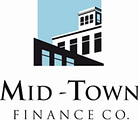Differentiating Personal Loans from Debt Consolidation Loans
Having multiple high-interest debts can be quite a struggle for any individual trying to earn a living. The longer those debts remain, the more money you need to shell out as the interest accumulates. One of the most effective ways of dealing with those debts is to consolidate them so you can save money and pay off the balance faster. Two of the most common choices for consolidating your debt is to take out either a personal loan or a debt consolidation loan. This guide discusses the difference between the two loan types and which one would be more suitable for you.
Personal Loan
A personal loan is one of the most common types of installment loans that can be used for almost any personal expense. Whether you’re having a home renovation, having a dream vacation, or making a big purchase, a personal loan is at your disposal should you need it. You can practically get this type of loan from online lenders, banks, and credit unions. A typical personal loan amount can be as low as $600 and all the way up to $20,000. While there are loan programs that can go as high as $100,000, they’re few and far between.
Unlike secured loans like mortgages and auto loans, personal loans are considered an unsecured form of credit due to a lack of collateral. If a borrower defaults from their payments and is unable to pay the loan, the lender cannot seize any property from you.
When you’re approved for a personal loan, you’ll receive the cash you borrowed, usually in the form of a check or direct deposit to your account. You can practically spend the money in any way you want, but you should still confirm with your lender if there are any restrictions to where you can use the money you borrowed.
Debt Consolidation Loan
A debt consolidation loan is basically just a more targeted form of a personal loan in the sense that it’s also a fixed rate, unsecured type of loan used for reorganizing debts. Technically speaking, there’s really no special category known as debt consolidation loans. They’re practically just personal loans targeted towards a specific purpose. In this case, it’s paying off multiple debts into a single loan package with hopefully lower interest rates.
If you have credit card balances building up and are also trying to pay off a car loan or dealing with overdue bills, you can take out a debt consolidation loan to pay off all your remaining balance. By consolidating all your debt, you can now focus on paying just one loan instead of trying to pay off multiple creditors.
Conclusion—Debt Consolidation is the Answer
The act of consolidating your debt into a single payment is a smart financial move for individuals struggling to keep up with multiple debts. Whether you want to pay off multiple debts or “refinance” an existing high-interest debt, consolidating is a good option for you. Just remember to make sure you choose a loan with better terms, so you don’t put yourself in a worse financial position.
At Mid-Town Finance, we understand the struggles of trying to keep up with all your bills and expenses in an ever-changing economy. That’s why we offer some of the best ,installment loans in Nashville with clear, straightforward repayment plans. For any inquiries about our loan programs, contact us today at (615) 391-9378.
